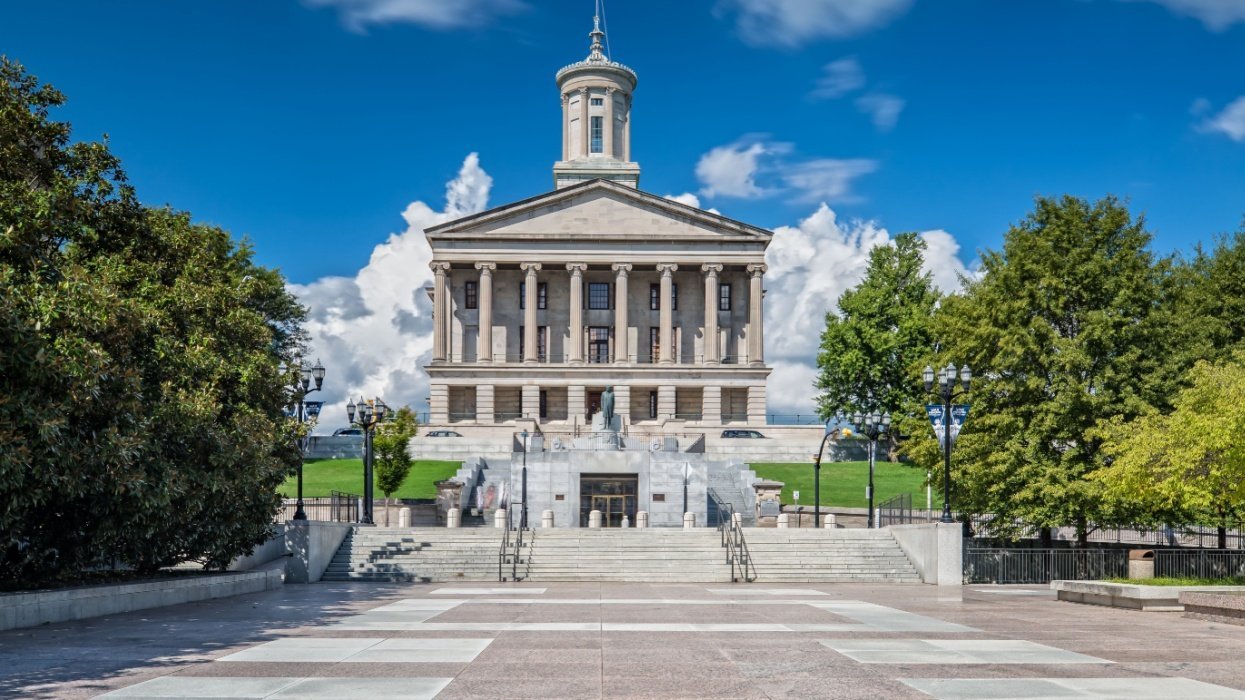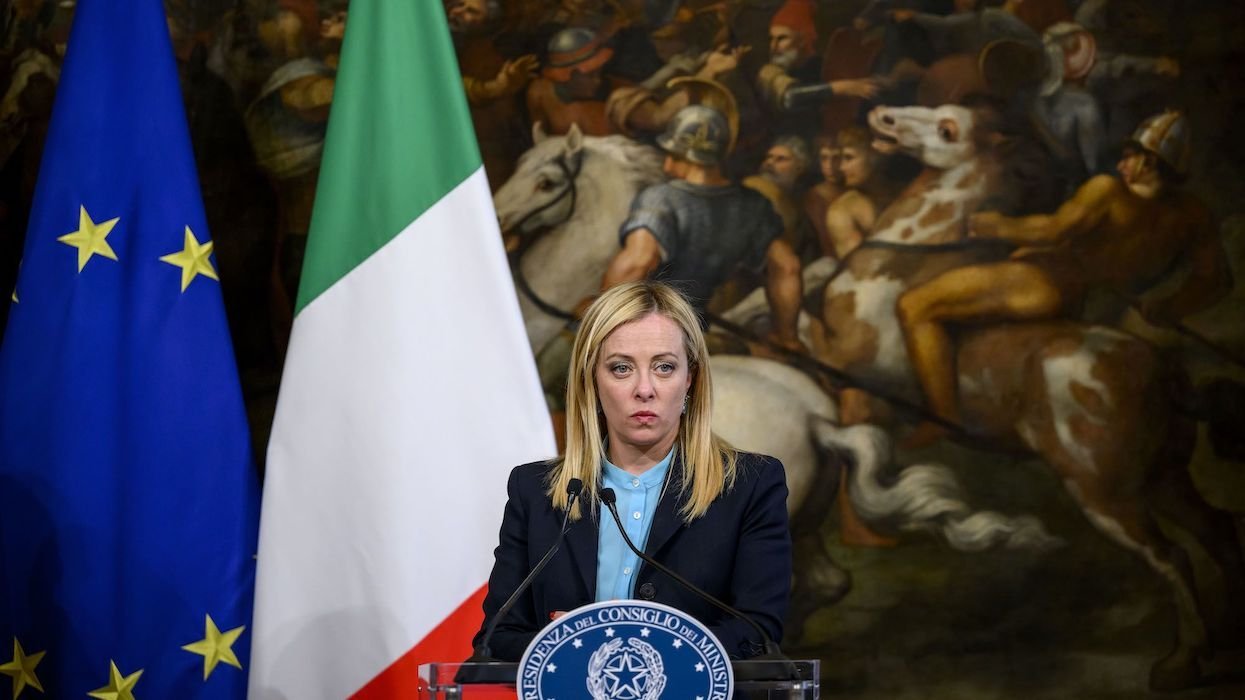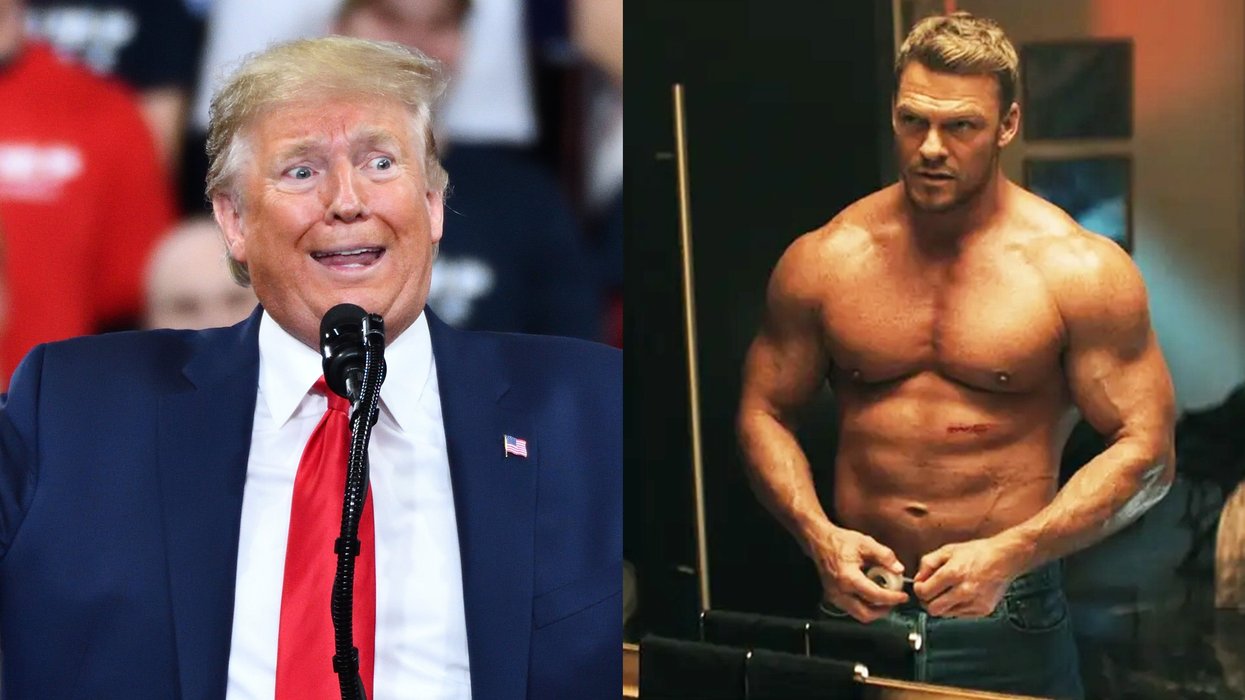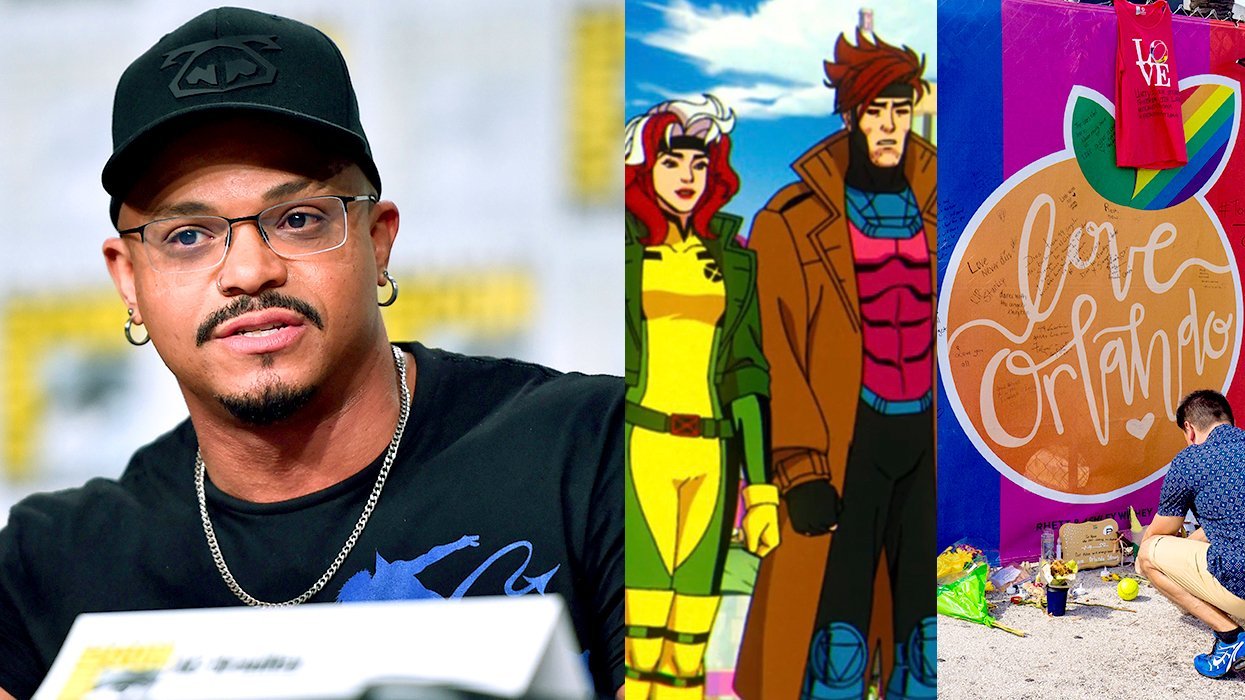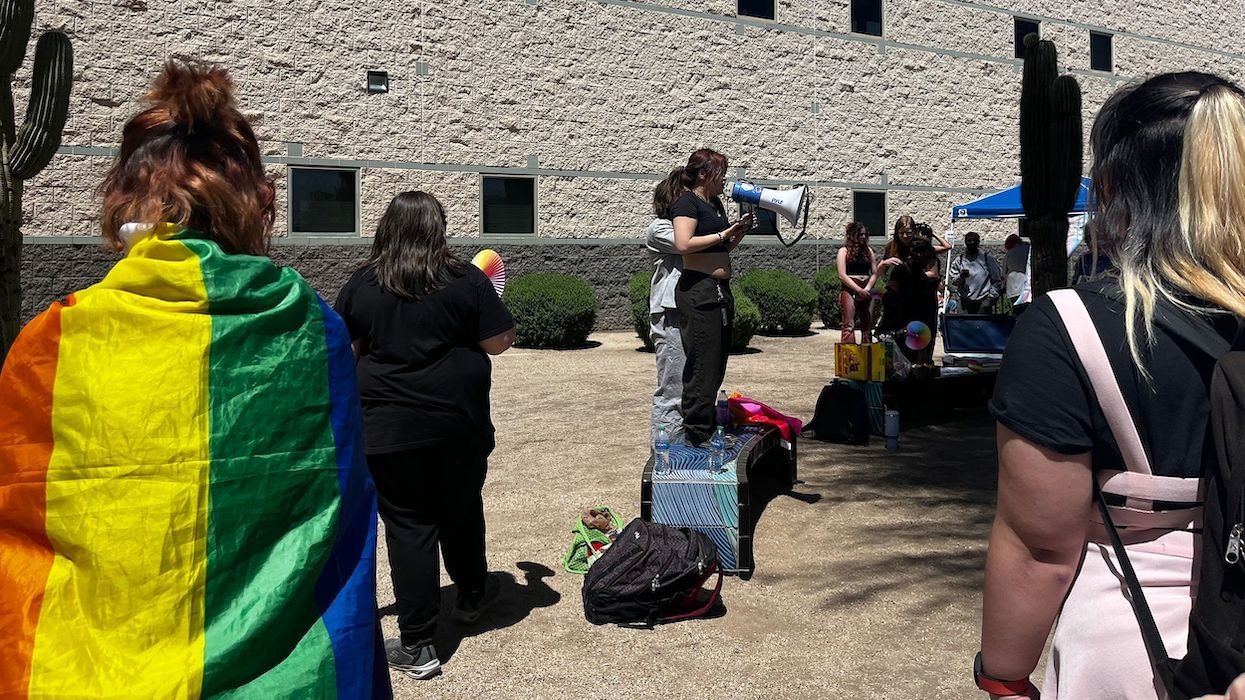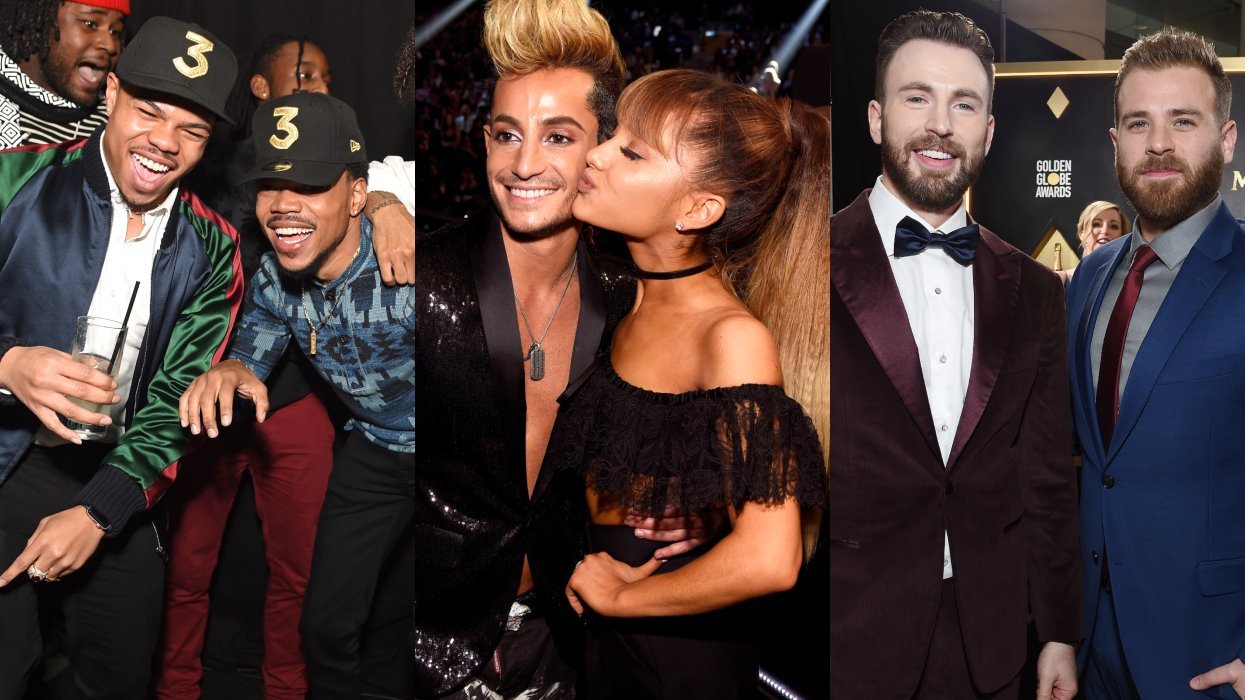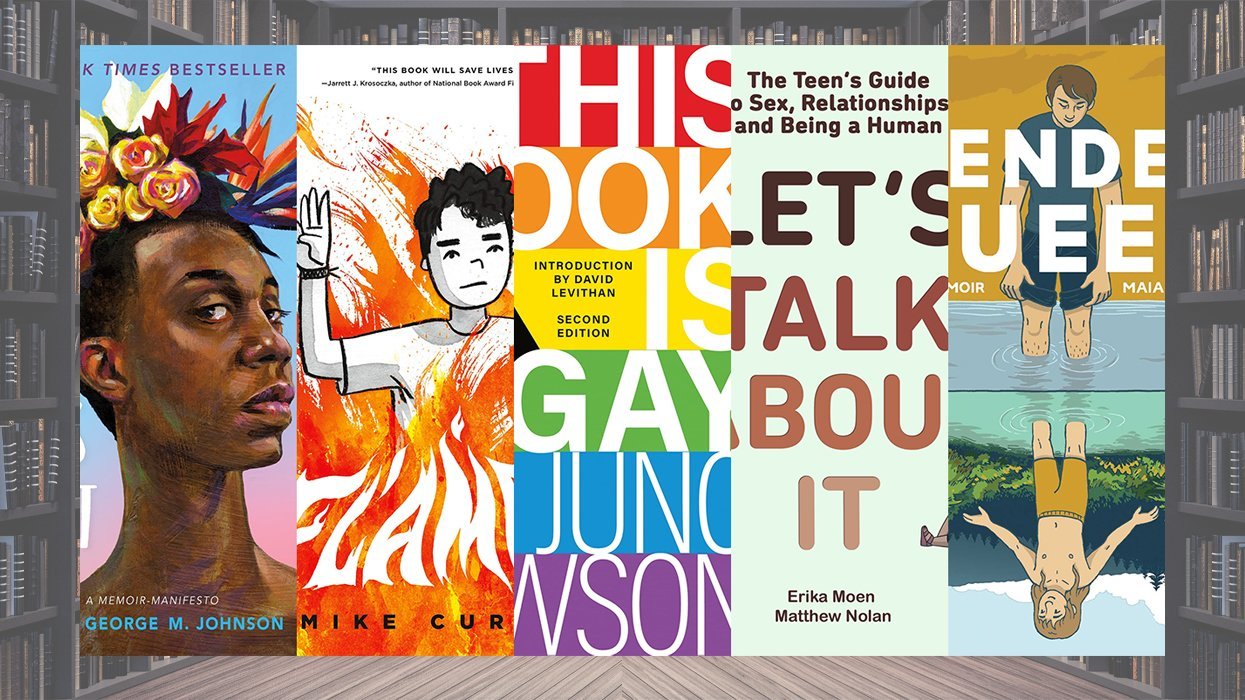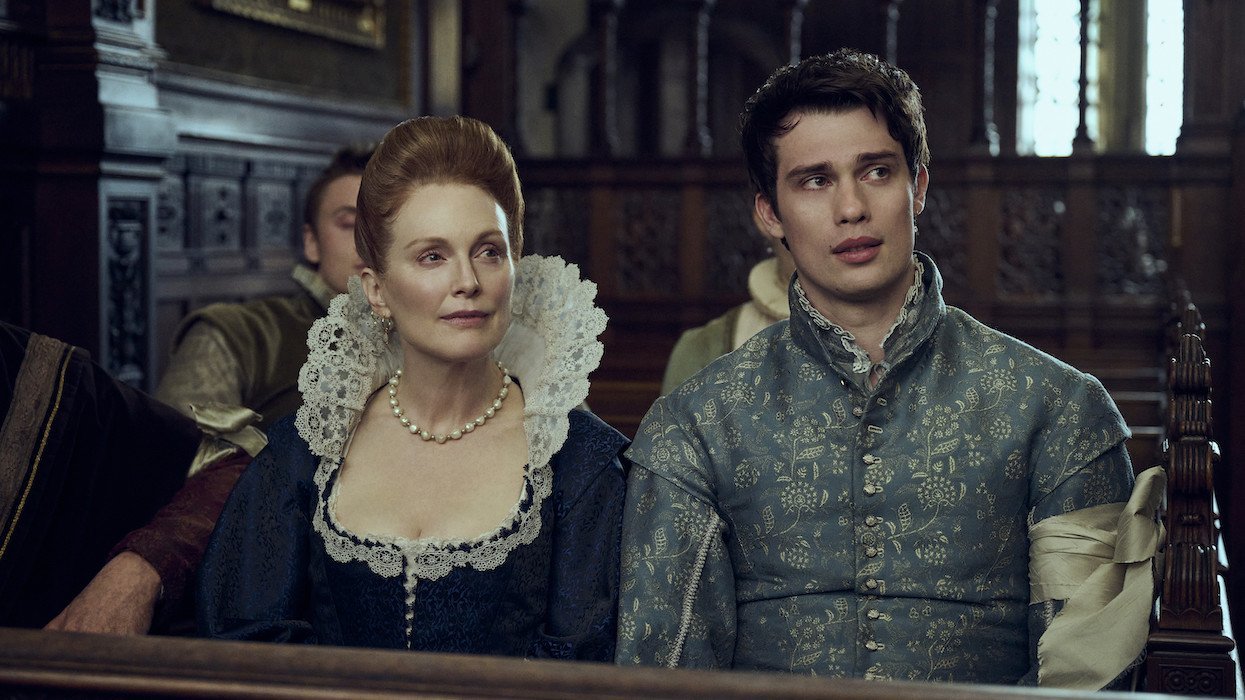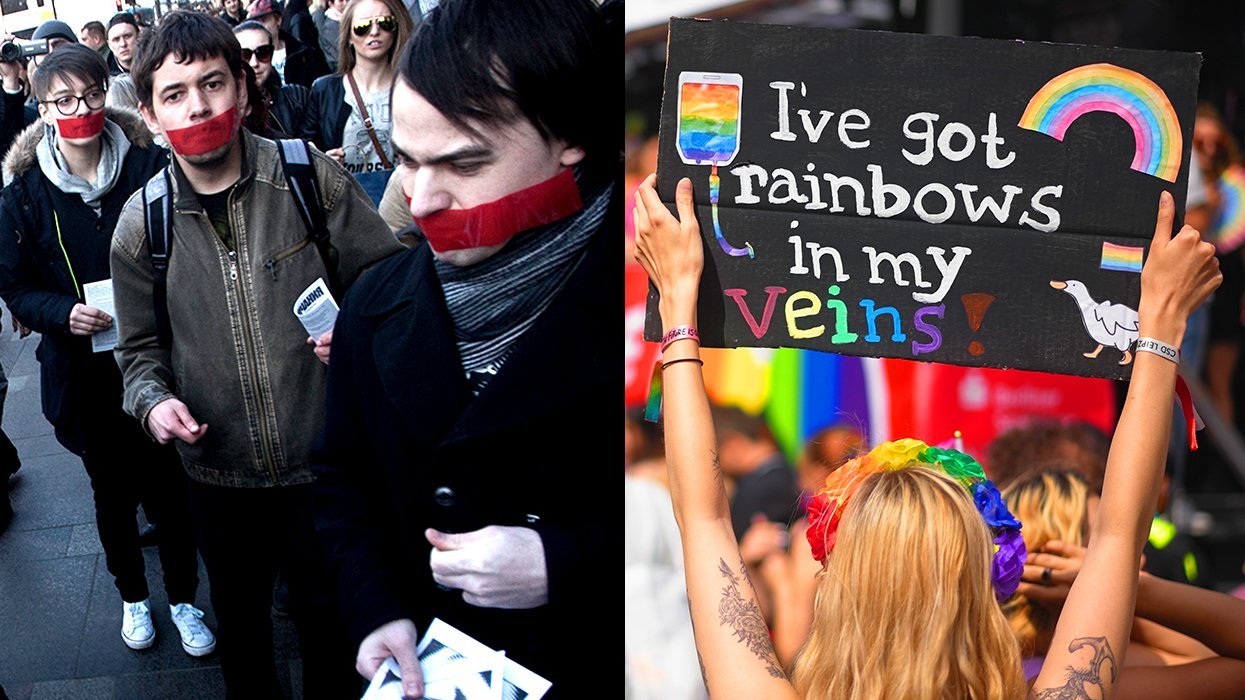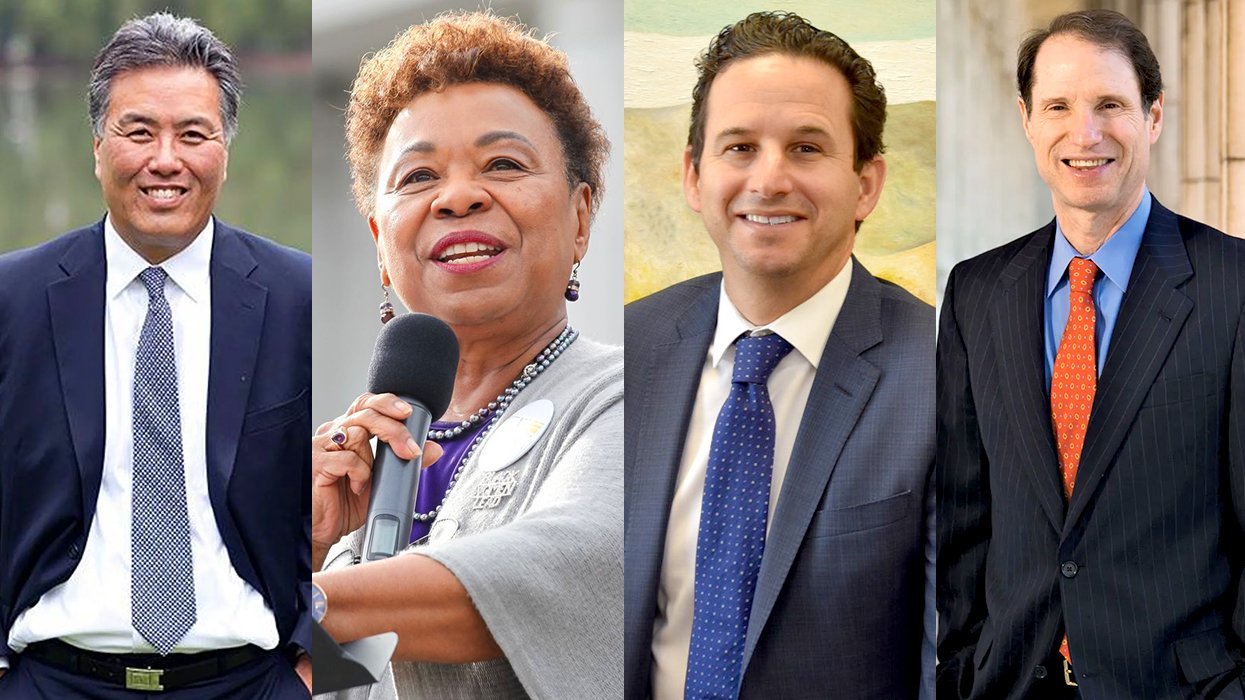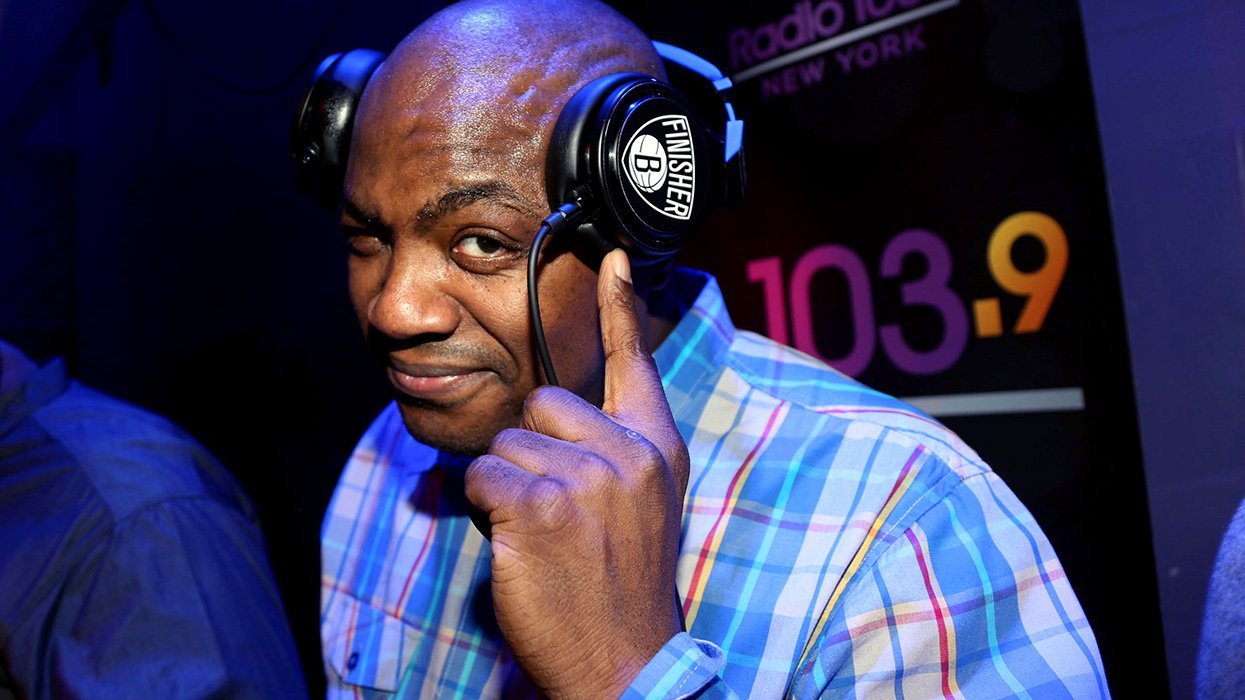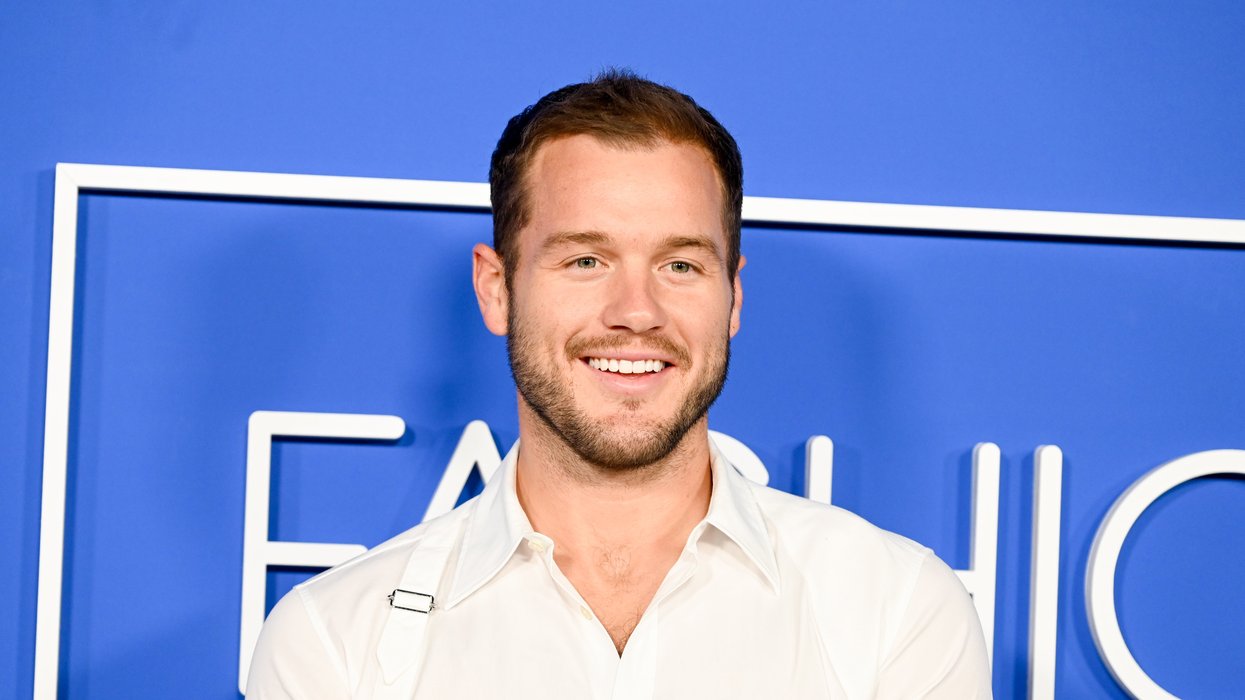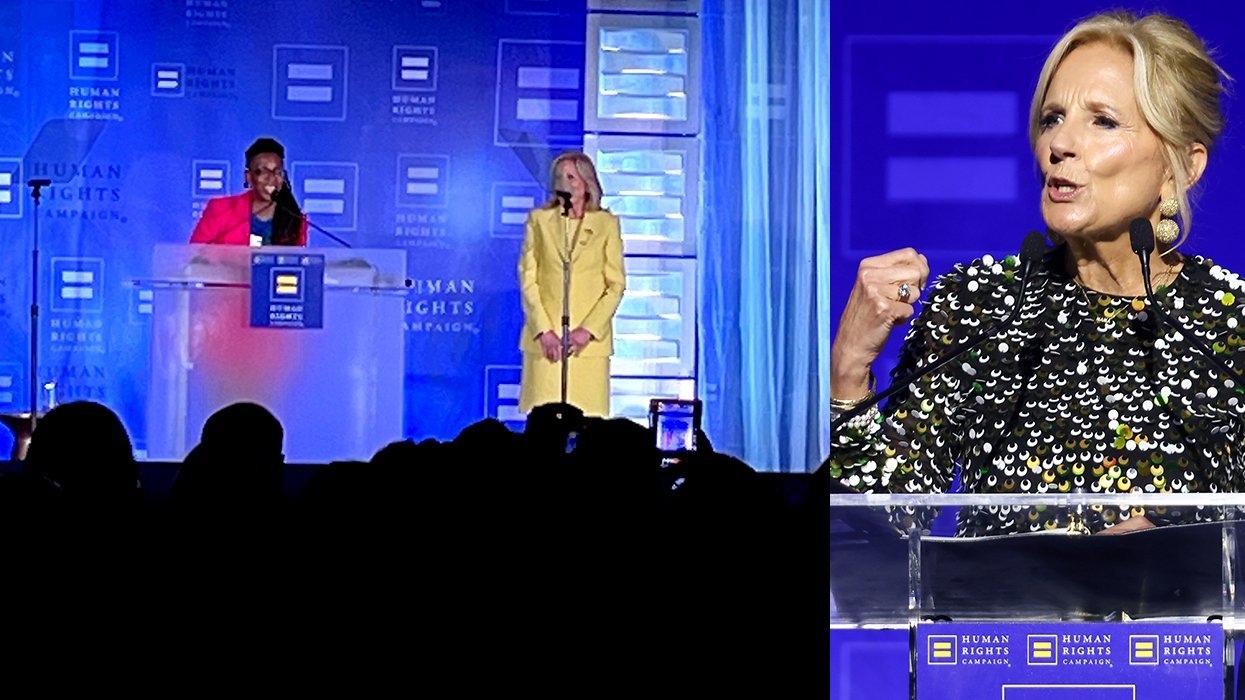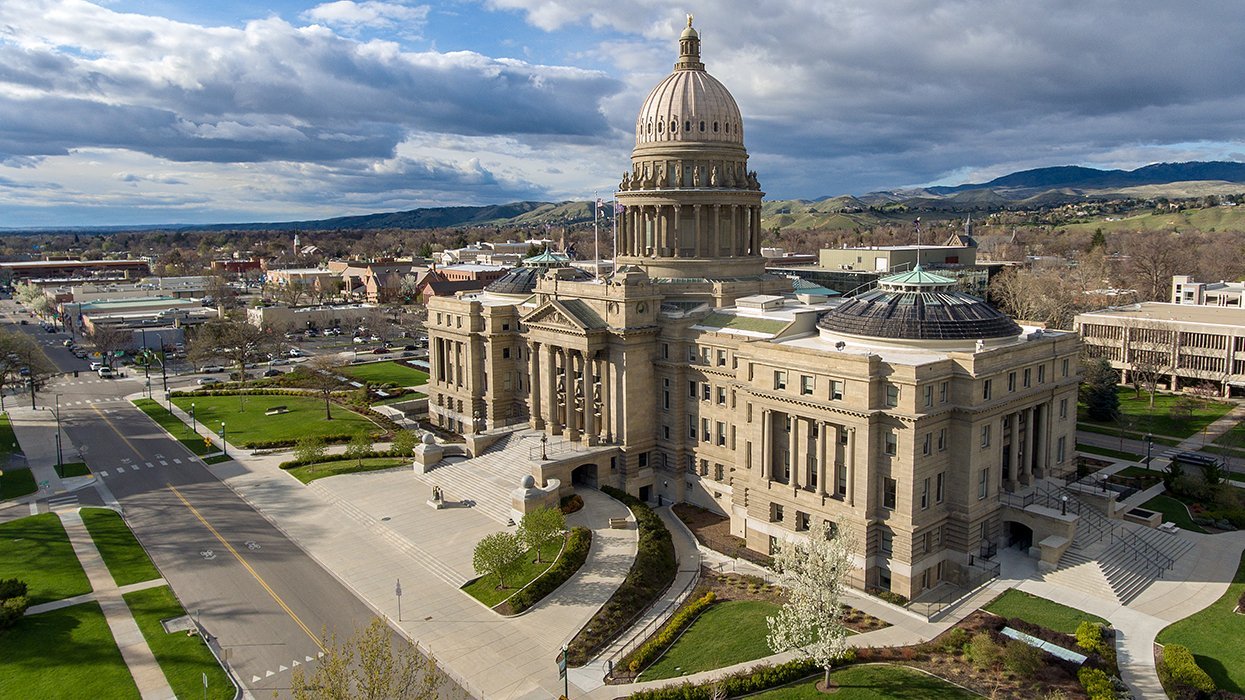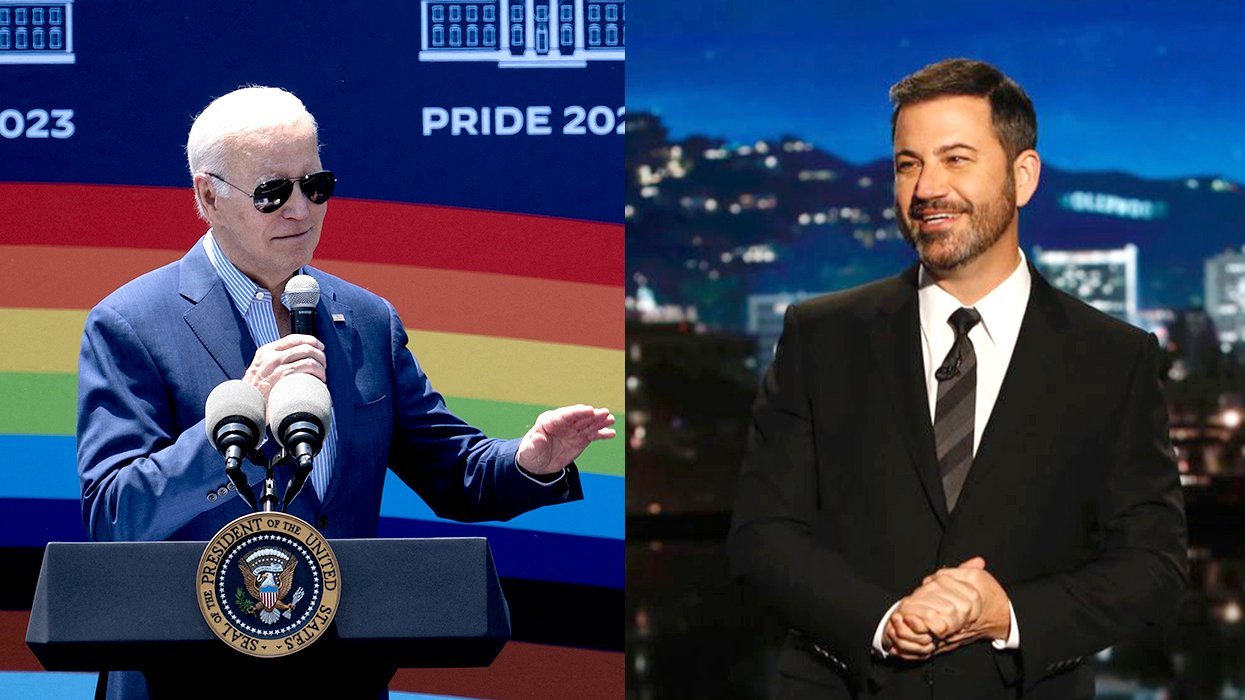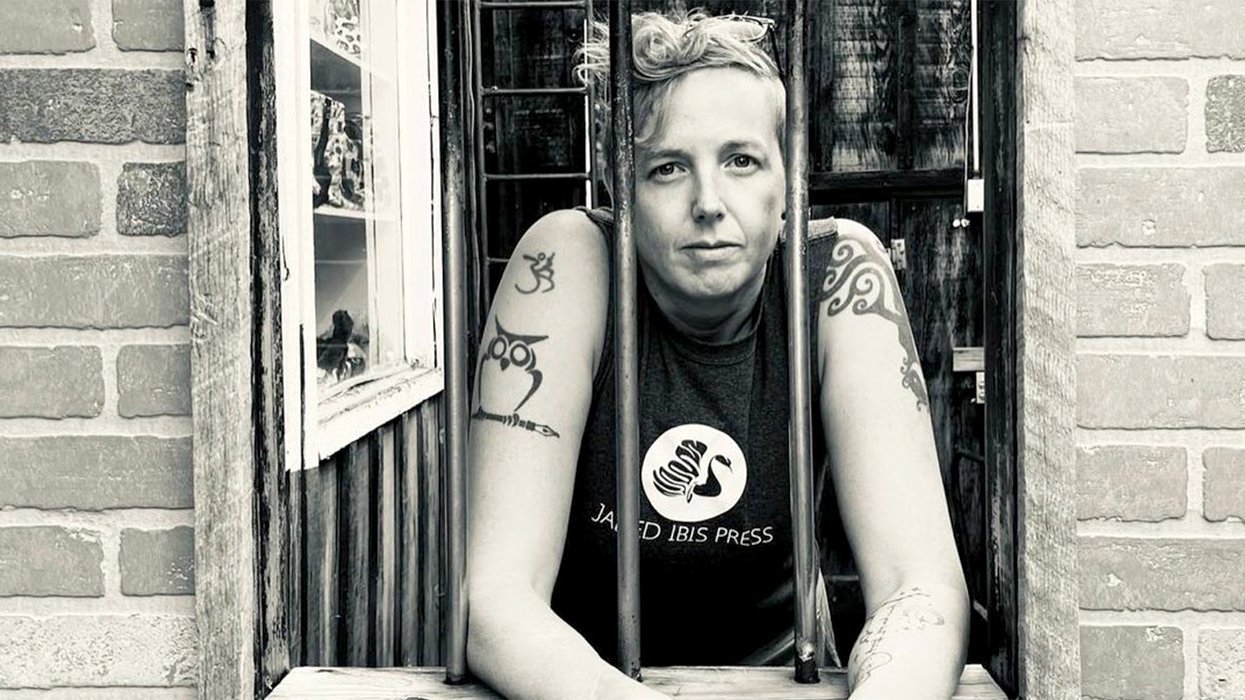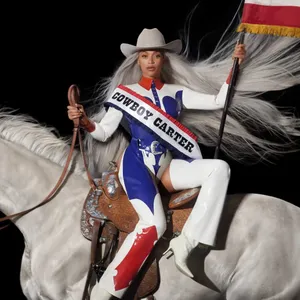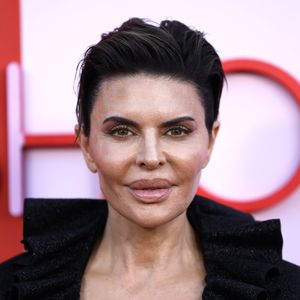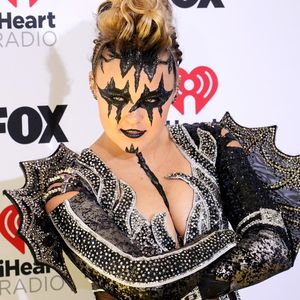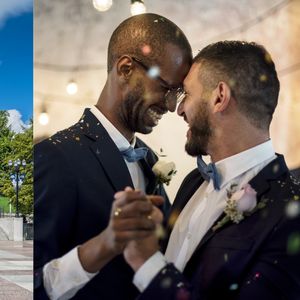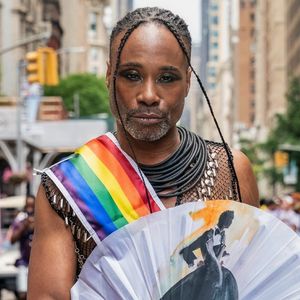
CONTACTStaffCAREER OPPORTUNITIESADVERTISE WITH USPRIVACY POLICYPRIVACY PREFERENCESTERMS OF USELEGAL NOTICE
© 2024 Pride Publishing Inc.
All Rights reserved
All Rights reserved
By continuing to use our site, you agree to our Private Policy and Terms of Use.
Dominic Cooper is the straight boy you've always fantasized about. All apologies to the lesbians, but it's true. In The History Boys he plays the calculating, darkly handsome 18-year-old Dakin, gunning for acceptance to "Oxbridge." His lone gay classmate adores him, his straight buddies want to be him, and one of his two closeted male teachers prefers him out of the whole lot to drive home from school and cop a feel. In the aftermath of Foleygate, the setup of The History Boys--the film adaptation of the Tony-winning Broadway hit--is eerily familiar.
It makes you wonder: Is this the kind of sexy, charismatic teenager who brought down the former Florida congressman? "Amongst those pages there were some whom he was preying upon who were vulnerable, and there were some who were wrapping him around their little fingers," the film's director, Nicholas Hytner, concedes in his proper British accent. "I'm sure that there were both kinds."
And the similarities between the world of The History Boys and Capitol Hill don't end there. In playwright Alan Bennett's finely wrought script about education, the meaning of history, and the limits of sexuality, the headmaster of the school, like a certain lame-duck U.S. House speaker, looks the other way for years while the teacher (Hector, played by Richard Griffiths) makes a habit of casually groping the boys. And when those transgressions are finally made public, rather than deal with it, the administrator obfuscates. "What is really similar is the headmaster chooses to cover it up: Instead of just firing him, he tries to manipulate him into resigning--that is exactly like Hastert," Hytner says, referring to our pal Denny, who apparently knew about Foley's exploits for some time but chose not to do anything about them. "The discovery of the crime is worse than the crime. You can go on fiddling with the page boys as long as nobody knows about it."
But as in a slew of new cultural offerings, The History Boys--nominally about a group of talented students in the north of England who stay an extra term at school in order to improve their chances of admission to Oxford or Cambridge--shows that teenagers aren't the innocent victims they're often made out to be. In a culture where the burgeoning sexuality of youth is generally unacknowledged (abstinence-only sex education, anyone?), perhaps the most remarkable thing about the movie is that the boys just don't care that Hector feels them up. In fact, they're completely aware of why he does it (he's a pitiful closet case, a "sick fuck" in the words of one) and why they let him (because he's a brilliant, inspiring teacher in every other way). It all demonstrates a sophistication about sex that flies in the face of political correctness. What's more, The History Boys is one of a handful of indie films out now and in the coming months involving students seducing their teachers. Loving Annabelle and Whole New Thing, plus another upcoming British import, Notes on a Scandal (starring Judi Dench and Cate Blanchett), all feature amorous relationships instigated by young people who are usually considered the victims. Even onstage in singer-songwriter Duncan Sheik's new Broadway musical, Spring Awakening, which is based on a fin-de-siecle play about sexual coming of age, the kids are fully in command of their sexuality.
Cooper's character of Dakin exemplifies that swaggering maturity. He not only serves as a model for the other students on how to handle Hector's advances with aplomb but also seduces a much younger male teacher, Irwin (played by Stephen Campbell Moore), because he can find no other way to get to him. "Obviously he's very aware of who likes him, who fancies him, who finds him sexually attractive, and he uses that completely to his advantage," Cooper tells me one November afternoon in the bar of the Regency Hotel on New York City's upper east side. The 27-year-old is even sexier in person than on-camera, with brooding eyes and the kind of thick black hair you want to run your fingers through. Like the rest of the cast, he's been with The History Boys since it debuted at the Royal National Theatre in London in 2004, and he was back in New York only a short while after wrapping up a six-month stint in the play on Broadway (for which he was nominated for a Drama Desk award). "He's into girls," he says of his character, trying to account for this straight boy's interest in the younger male teacher, "but he's like, I wonder what that would be like. And he's just using that anyway to get into the teacher's mind."
For anyone more used to such seductions happening the other way around, the scenes in which Dakin propositions Irwin can be quite shocking. "A couple people have said, 'Well, it's completely ludicrous; a pupil would never try to seduce a teacher!' " says Hytner, "to which I say, 'Well, probably very few have, but this one did.' " And so did at least one cast member, he reveals. "Early on in the run of the play at the National, I got a letter from someone who saw it saying it's totally ridiculous. I walked out into the office and said, 'Let me just try this one on you: Is it ridiculous that a pupil would ever try to seduce a teacher?' And two hands went up, two people! I won't say who, but a straight member of the cast had had a sexual relationship with his teacher. It happens! Every now and then, it happens."
Indeed, that very sexual tension is one of the primary themes of The History Boys: that the transmission of knowledge is itself an erotic act, as Hector says when he's finally busted for groping his intellectual charges. "He uses that concept in a ludicrous way," says Hytner, "but what I really was trying to do was eroticize the workings of the intellect. Those kids get really excited by new ideas. They're at their most animated--the camera is at its most lively--when people are thinking hard, when ideas are being batted around in the classroom." So is it any wonder that carnal desire gets mixed up in it all? "Whether in an academic situation or even around a dinner table, ideas can be almost sexually exciting," he says. "It's therefore no accident that there are so many sexual relationships, particularly at college level and thereafter. It's sometimes inappropriate, but what's very honest is the germ of the relationship is in the mutual excitement of transmitting and receiving new ideas."
Yet be that as it may, in The History Boys it's often hard to separate the eroticism of knowledge from just plain homoeroticism--not that any of the boys seem to mind. Although the classroom is a predictable hothouse of hormones--the students serenade each other with old standards and act out both the male and female parts in classic movie scenes and improvised dialogues (including one in which Dakin strips off his pants)--there is none of the bullying or gay baiting one might expect. For all its realistic portrayal of a time in young men's lives when, as Cooper puts it, "you constantly got an erection," the lack of harassment is telling, especially in the early-1980s time period of the film.
"My memory is not that we were so relaxed, so at ease with ourselves and each other's identities," says Hytner, who is gay and attended an all-boys school in the 1970s that was very similar to the school in The History Boys (as did the writer, Bennett, but some two decades earlier) before matriculating to Cambridge. "But we were educated so we knew going through that it was completely wrong to be homophobic, so we weren't. I have a very strong, old-fashioned view that if you are properly educated, it is almost impossible to be prejudiced. It's why education is feared and teachers are routinely underestimated and undervalued, because a fully educated population isn't going to stand for a great deal of what goes on in society.
"If you are passionately educated in English literature, how can you be homophobic? How can you be racist? How can you be sexist?" Hytner asks. "That doesn't mean that the burden of being different doesn't live with you, it doesn't mean that prejudice doesn't live in the other kids--they just know it's the wrong thing to be."
It was Election Day, and he nodded at a nearby TV tuned to CNN. "The most distressing thing is to see educated Americans cynically turning their backs on what their education has taught them," he says. "There's so much manipulation and prejudice, not only in this country but all over Europe too. It's cynical, in bad faith. Does Dick Cheney really give a shit about gay marriage? No, he doesn't, not really, but he'll pretend to give a shit to win votes. In a way, that's worse than the sincere prejudice of the people who turn out to vote."
But in promoting the film, Hytner has seen cause for optimism. Just a few months ago he went back to his old school to talk about The History Boys, and he was "so thrilled" to see how progressive the current students were. "One of them had directed the play--without the rights!--and they were talking very openly and with wit and warmth about each other's different sexualities. It's there in pockets. Every now and then it's worth imagining, just recognizing a group of characters whose issues are intellectual rather than of identity."
Cooper, who is straight and went to a mixed-gender school in London, agrees: "I remember being taunted--if you were in the theater, there was a certain amount of abuse--but that doesn't go on with these boys. They're too intelligent. It may have gone on when they were younger, but now they're just beyond any of that." As is he, he says, having trained as an actor at the London Academy of Music and Dramatic Art, where he no doubt rubbed shoulders with many a gay man. "I've always been surrounded by people who are up for anything. I'm just like, whatever, which is very lucky, because some of us don't grow up in that environment," he says. "So I'm very fortunate.
Want more breaking equality news & trending entertainment stories?
Check out our NEW 24/7 streaming service: the Advocate Channel!
Download the Advocate Channel App for your mobile phone and your favorite streaming device!
From our Sponsors
Most Popular
Here Are Our 2024 Election Predictions. Will They Come True?
November 07 2023 1:46 PM
17 Celebs Who Are Out & Proud of Their Trans & Nonbinary Kids
November 30 2023 10:41 AM
Here Are the 15 Most LGBTQ-Friendly Cities in the U.S.
November 01 2023 5:09 PM
Which State Is the Queerest? These Are the States With the Most LGBTQ+ People
December 11 2023 10:00 AM
These 27 Senate Hearing Room Gay Sex Jokes Are Truly Exquisite
December 17 2023 3:33 PM
10 Cheeky and Homoerotic Photos From Bob Mizer's Nude Films
November 18 2023 10:05 PM
42 Flaming Hot Photos From 2024's Australian Firefighters Calendar
November 10 2023 6:08 PM
These Are the 5 States With the Smallest Percentage of LGBTQ+ People
December 13 2023 9:15 AM
Here are the 15 gayest travel destinations in the world: report
March 26 2024 9:23 AM
Watch Now: Advocate Channel
Trending Stories & News
For more news and videos on advocatechannel.com, click here.
Trending Stories & News
For more news and videos on advocatechannel.com, click here.
Latest Stories
After decades of silent protest, advocates and students speak out for LGBTQ+ rights
April 13 2024 10:52 AM
11 celebs who love their LGBTQ+ siblings
April 13 2024 10:33 AM
The 10 most challenged books of last year
April 13 2024 10:06 AM
Mary & George's Julianne Moore on Mary's sexual fluidity and queer relationship
April 13 2024 10:00 AM
Investigation launched after man screams homophobic slurs at queer couples on D.C. metro
April 13 2024 9:59 AM
Germany makes it easier to change gender and name on legal documents
April 12 2024 6:06 PM
A youth's call to action on this Day of NO Silence
April 12 2024 5:00 PM
Democrats introduce resolution in support of LGBTQ+ youth
April 12 2024 4:35 PM
Colton Underwood is hoping to create a gay reality TV dating show
April 12 2024 4:28 PM
Idaho closes legislative session with a slew of anti-LGBTQ+ laws
April 12 2024 1:39 PM

Pride
Yahoo FeedElevating pet care with TrueBlue’s all-natural ingredients
April 12 2024 1:39 PM
Watch Jimmy Kimmel's hilarious LGBTQ+ campaign video: 'You can't spell Biden without Bi'
April 12 2024 12:00 PM
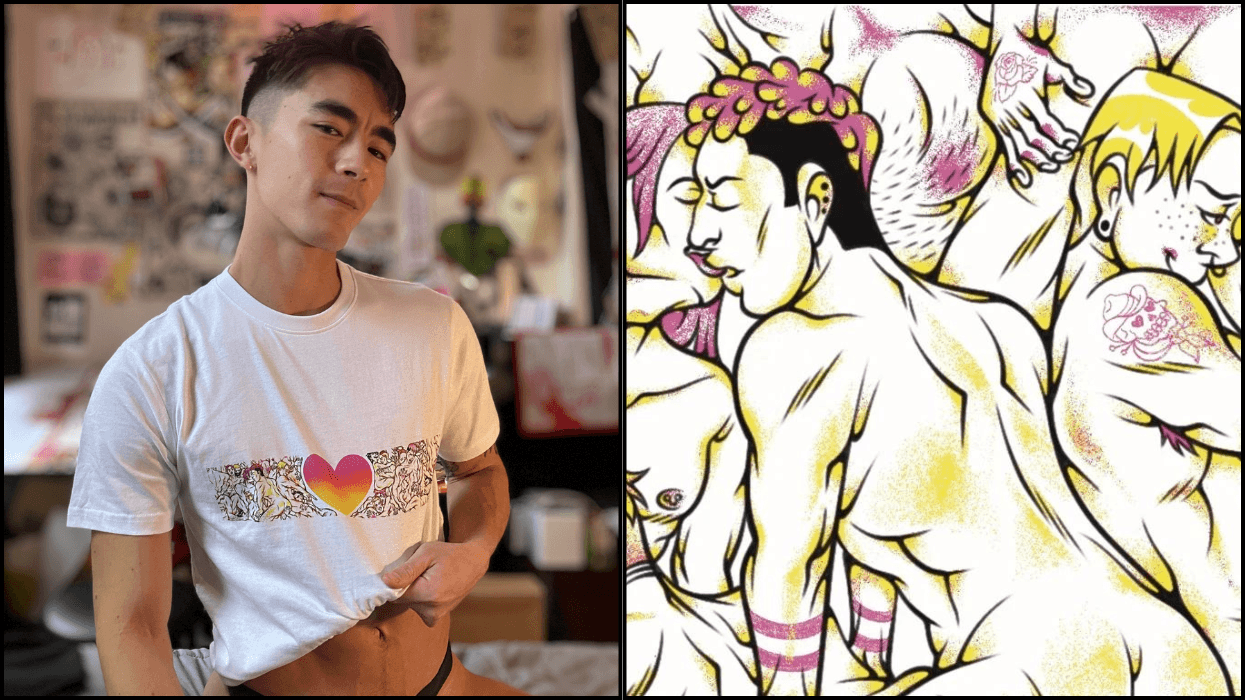
Pride
Yahoo FeedCreating erotic art and advocacy with adult entertainer Cody Silver (EXCLUSIVE)
April 12 2024 11:39 AM
How I navigated through religious trauma
April 12 2024 11:00 AM













